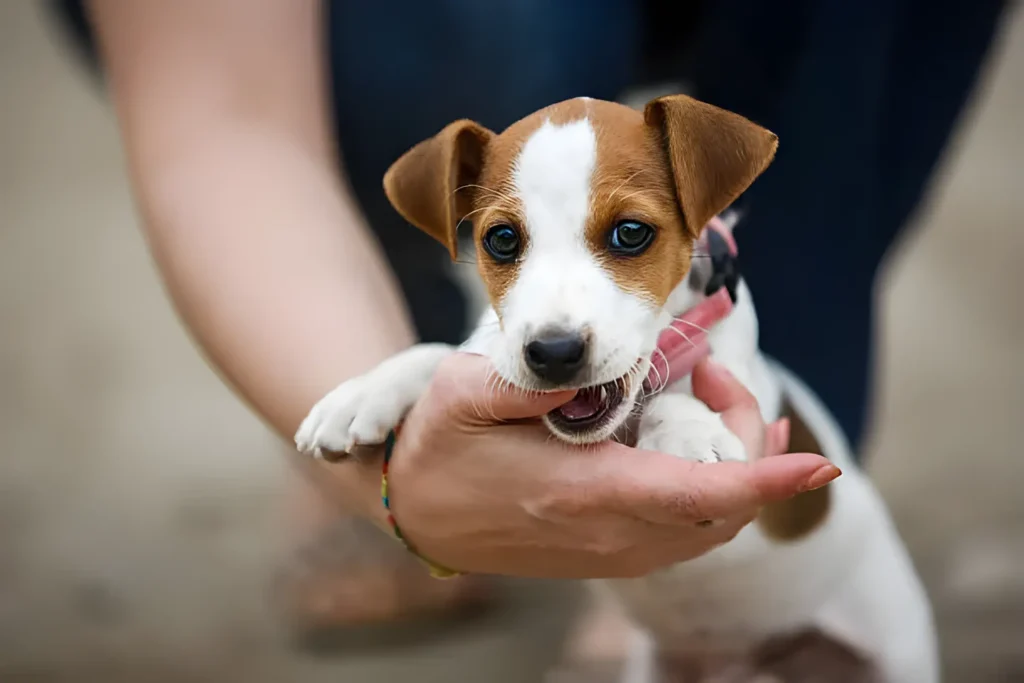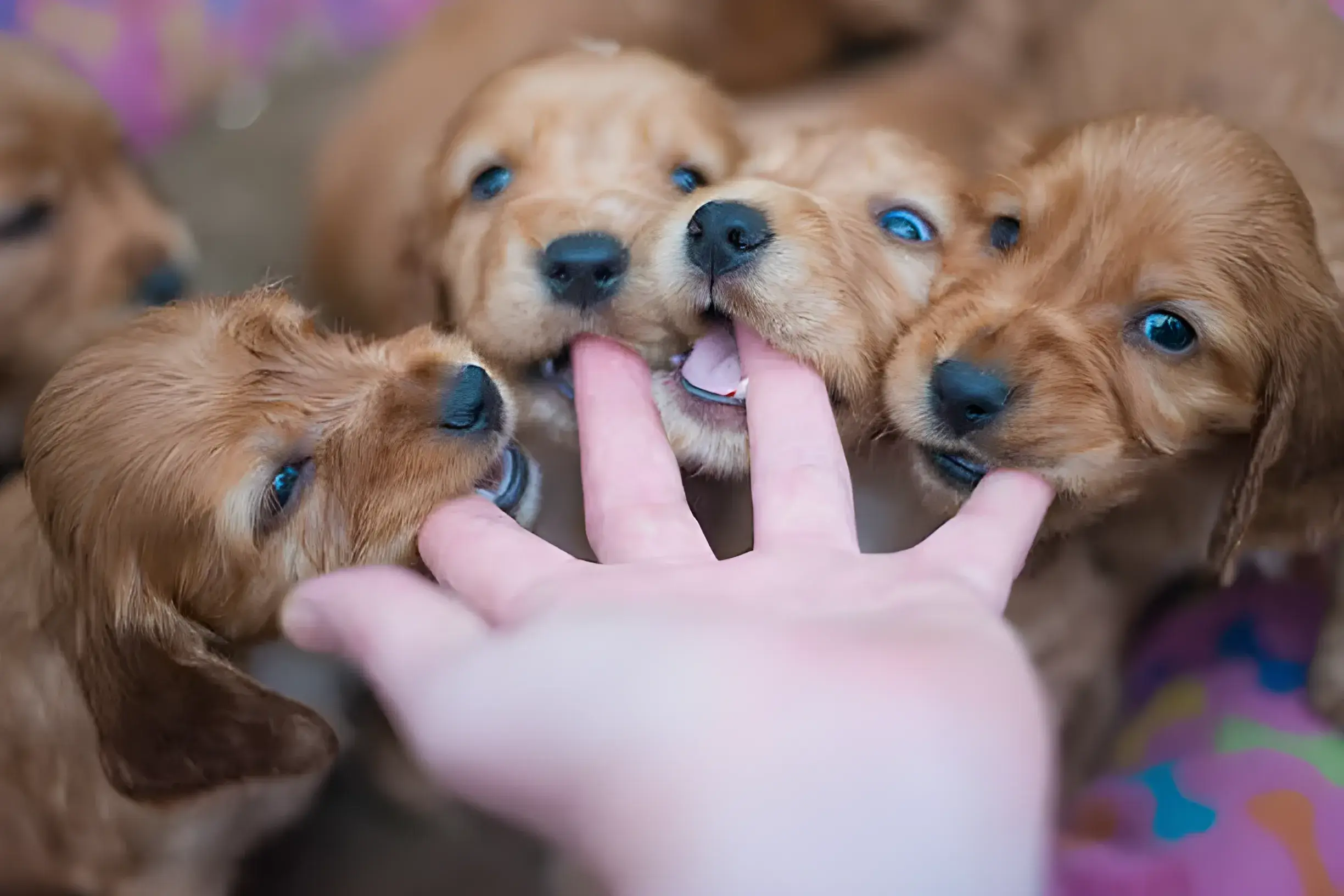Puppies bite – it’s a fact of life. To stop this behavior, you must consistently teach your puppy that biting hurts and offer them acceptable chewing alternatives. With patience and understanding, you can curb this normal puppy behavior.
Understanding the Reasons Behind Puppy Biting
Before implementing training strategies, it’s helpful to grasp the motivations behind those bites:
Playful Exploration: Young puppies often engage in playful biting and mouthing, unaware of the pain they may cause.
Teething Discomfort: The teething process brings sore gums, and puppies seek relief through chewing.
Learning Tool: Puppies use their mouths to understand their world, much like human babies.
Seeking Attention: Puppies may bite to initiate a response, even if it’s a negative one.
Effective Strategies to Stop Puppy Biting

Simulate Littermate Response (Yelping): Emit a sharp, high-pitched “ouch!” or “yelp” when bitten, simulating a playmate’s reaction. Immediately disengage by withdrawing your hand and briefly stopping play. This teaches your puppy the consequences of their actions.
Positive Redirection: Provide a variety of safe and engaging chew toys. the moment your puppy bites, offer an appropriate toy as a replacement. Enthusiastically praise them for chewing on the correct object.
Strategic Time-Outs: When yelping and redirection fail to stop the biting immediately, a short time-out is effective. Calmly remove your puppy to a designated quiet space (like their crate or a safe room) for 10-20 seconds. Once calm, resume playtime.
Preventative Measures: Recognize patterns in your puppy’s biting (tiredness, overstimulation) and preemptively offer a chew toy or engage in focused training before the biting begins.
Additional Success Tips
Focused Training Sessions: Short, reward-based training sessions develop impulse control and attention, reducing biting.
Physical and Mental Stimulation: Regular exercise, playtime, and puzzle toys stave off boredom-fueled biting.
Avoid Roughhousing with Hands: This encourages biting. Stick to fetch or tug-of-war with toys.
Essential Reminders
Consistency is Fundamental: Every family member and person who interacts with the puppy must adhere to these techniques.
Positive Reinforcement is Key: Avoid harsh punishments that create fear and can worsen the problem.
Supervised Socialization: Safe play with other dogs aids in learning appropriate play behavior.
Conclusion
Puppy biting requires patience and a consistent approach. Employ the above methods to shape your puppy into a well-mannered companion. Remember, positive reinforcement and understanding are the foundations of successful training.
I hope you find this article helpful and informative. If Yes’ feel free to share it with your friends!
Frequently Asked Question
My puppy bites harder after I yelp. What should I do?
For some puppies, the high-pitched noise can be overstimulating. Instead, withdraw and disengage completely for a few seconds.
When will my puppy stop biting?
Most puppies learn bite inhibition with consistent training over several months. If biting persists or worsens, consult with a professional dog trainer or veterinarian.
Is it okay to scruff my puppy to stop biting?
Scruffing is outdated and can damage your relationship with your puppy. Use positive reinforcement methods instead.
What age does a puppy stop biting?
Most puppies learn to control their bite force and decrease biting frequency around 4-6 months old. However, it’s important to begin bite inhibition training from the moment they join your family to ensure they develop good manners.
How do I stop my dog from biting when excited?
Overstimulated or excited puppies often resort to biting. To manage this:
Recognize triggers: Identify situations that lead to excitement-driven biting.
Redirect energy: Before your puppy reaches an overexcited state, provide a suitable outlet like a chew toy or a quick training session.
Manage the environment: If necessary, remove your puppy from the exciting situation and allow them to calm down before re-engaging.

